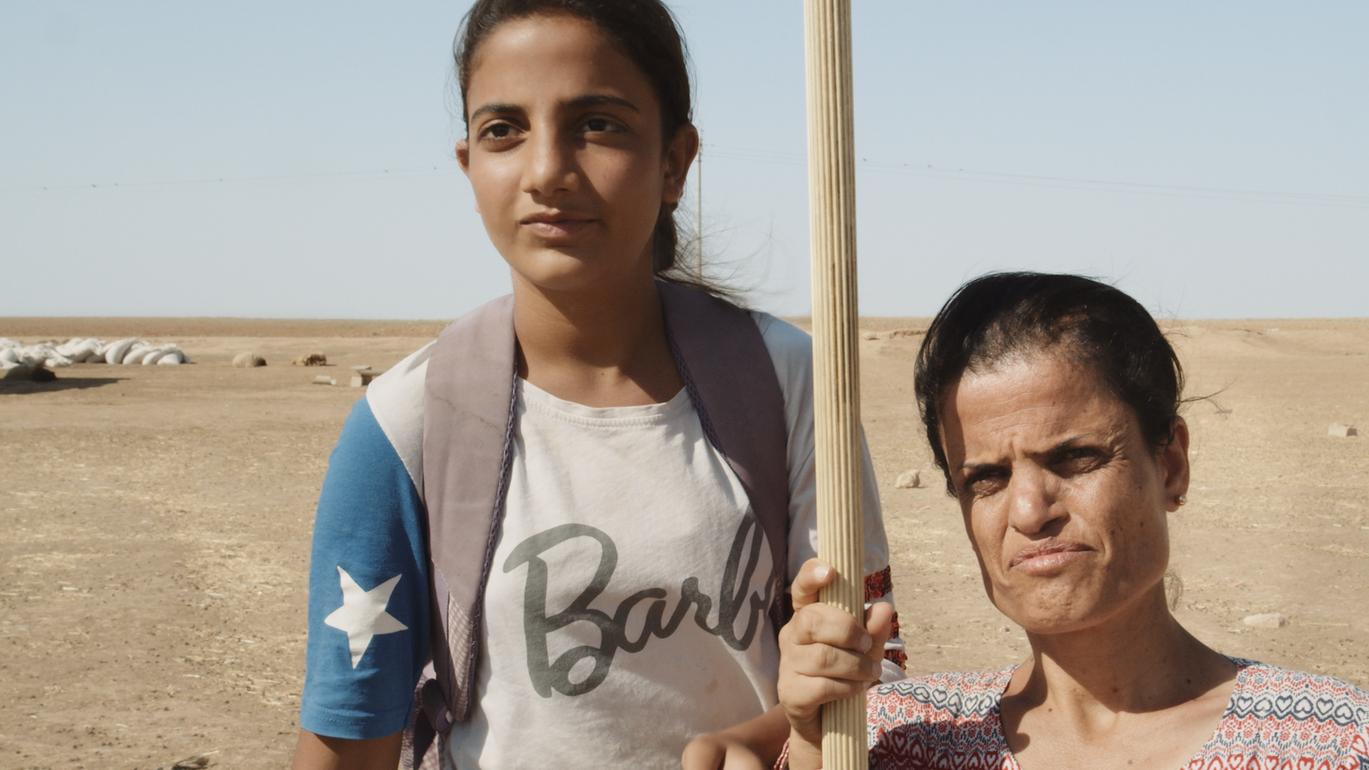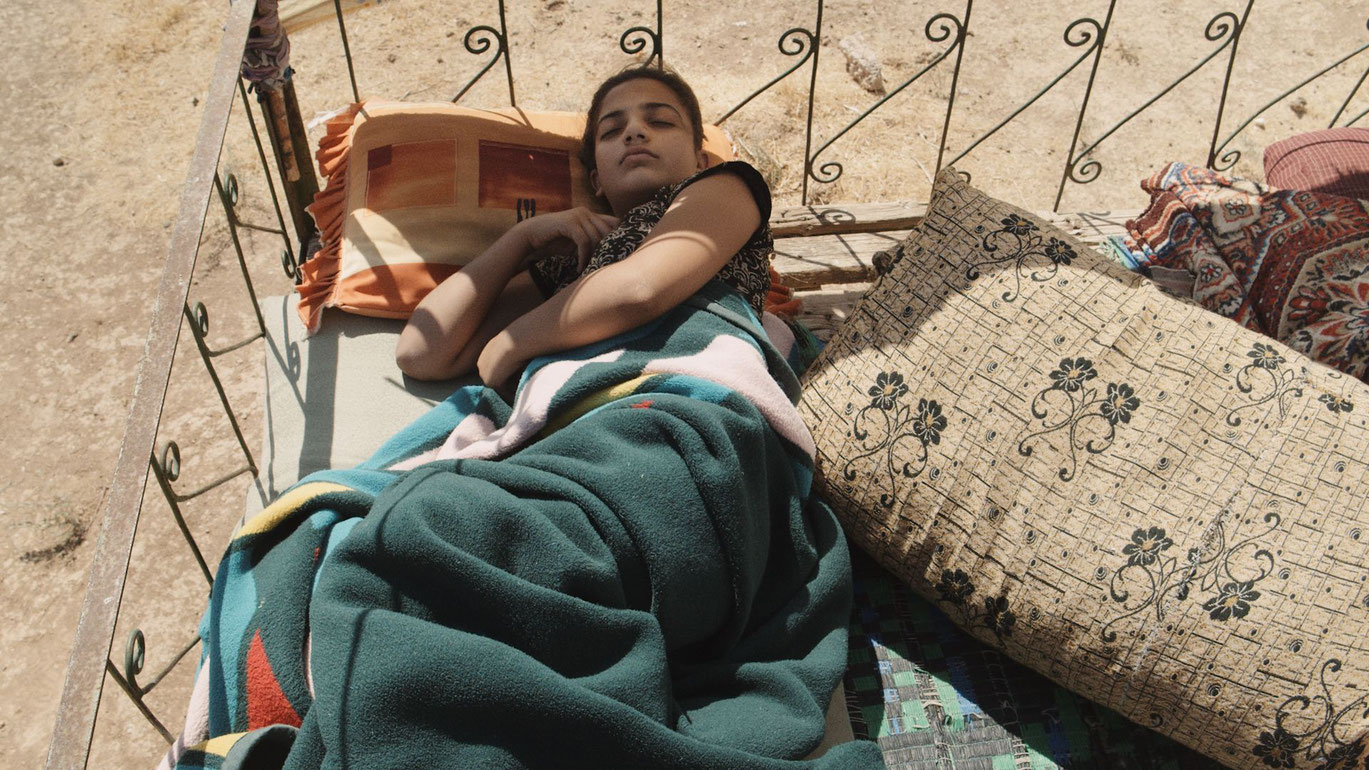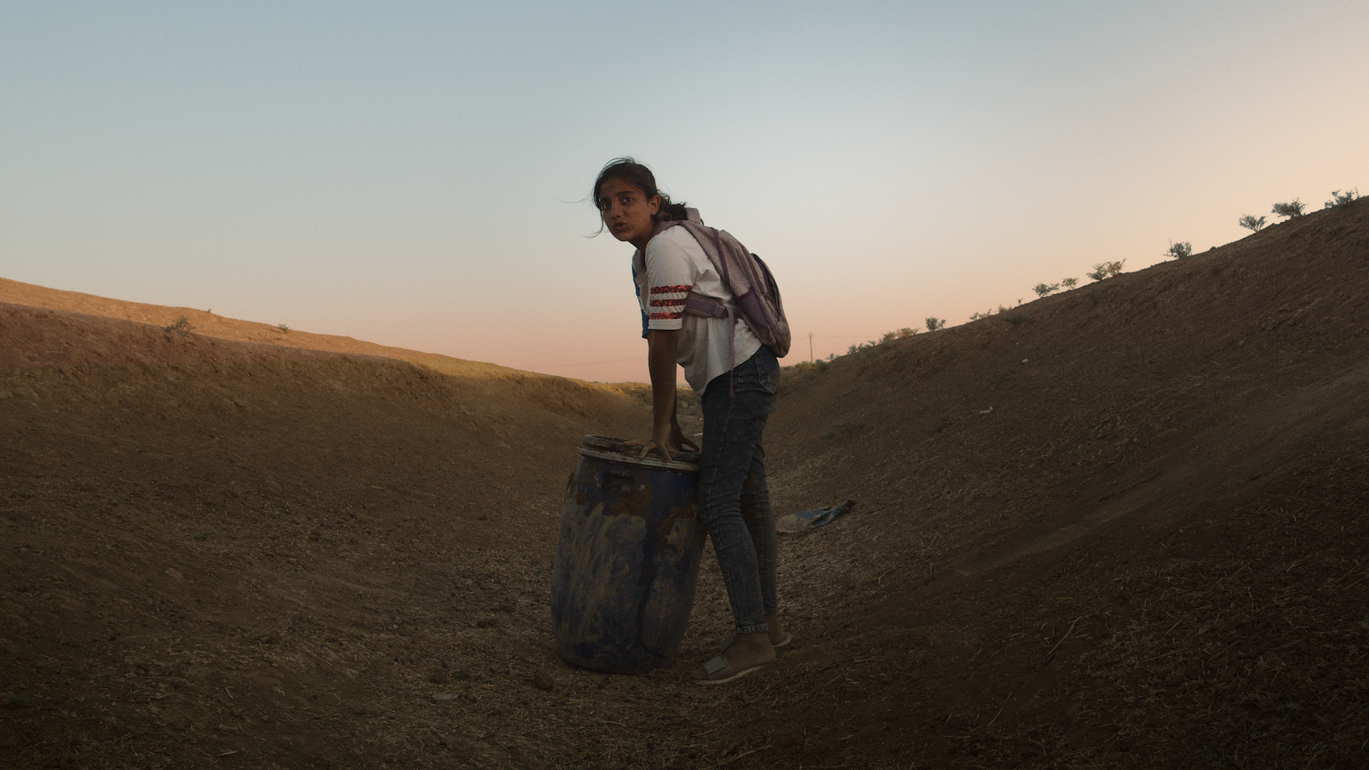YARÊ
The sun is already high in the sky when Yarê is woken up by her mother. At least the stomach pains that had been bothering the girl are gone. They were caused by the stagnant water she drank. In the sparsely populated desert between northern Syria – Kurdistan, Rojava – and Turkey, water is scarce. It is traded like a luxury item, and the price in the store sometimes doubles from one day to the next.
Yarê has a mind of her own. A real teenager in jeans and a Barbie T-shirt, she accompanies her mother to the water distribution point, where a number of people are already waiting. “UN” is written on a tank that is as empty as the promises of humanitarian aid made by the international community. The main pipeline has been broken for months, but the Turks are not repairing it. One of those waiting in vain is convinced that “They want us to die.”
Against this grim background, the years of discrimination that has existed against the Kurdish population, Sallar Othman tells the story of a self-confident girl’s heroic journey. On the spur of the moment, Yarê sets off for the next village with a plastic barrel. For a while she rides unnoticed as a stowaway on a grumpy old man’s horse-drawn cart. And she actually does get fresh water. But then how is she supposed to get the full 200-liter barrel home?
Whether there will be a happy ending remains uncertain. Yarê has little chance, but she takes it anyway. The way in which she does this is where the film finds its strongest, most moving moments: a modern, female variation on the myth of Sisyphus, who struggles against fate with all his might. (Michael Omasta)
YARÊ
2024
Austria
19 min



